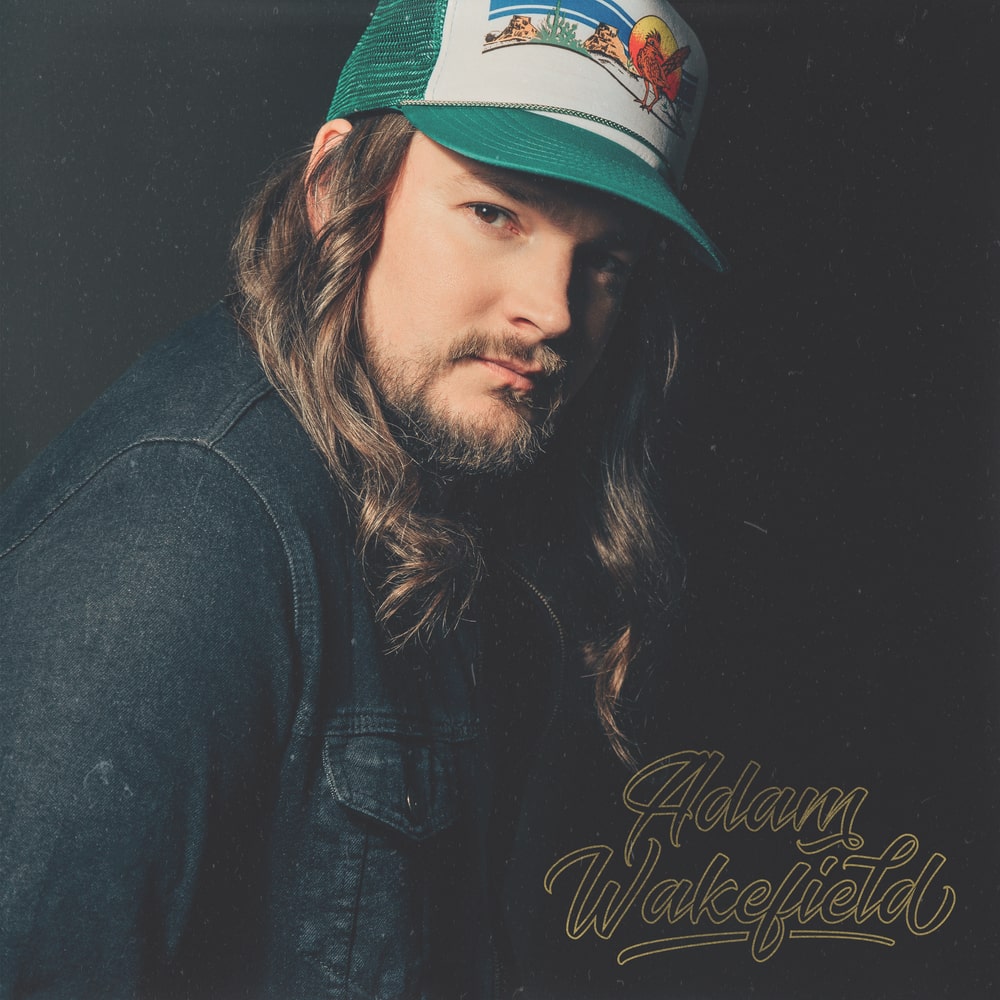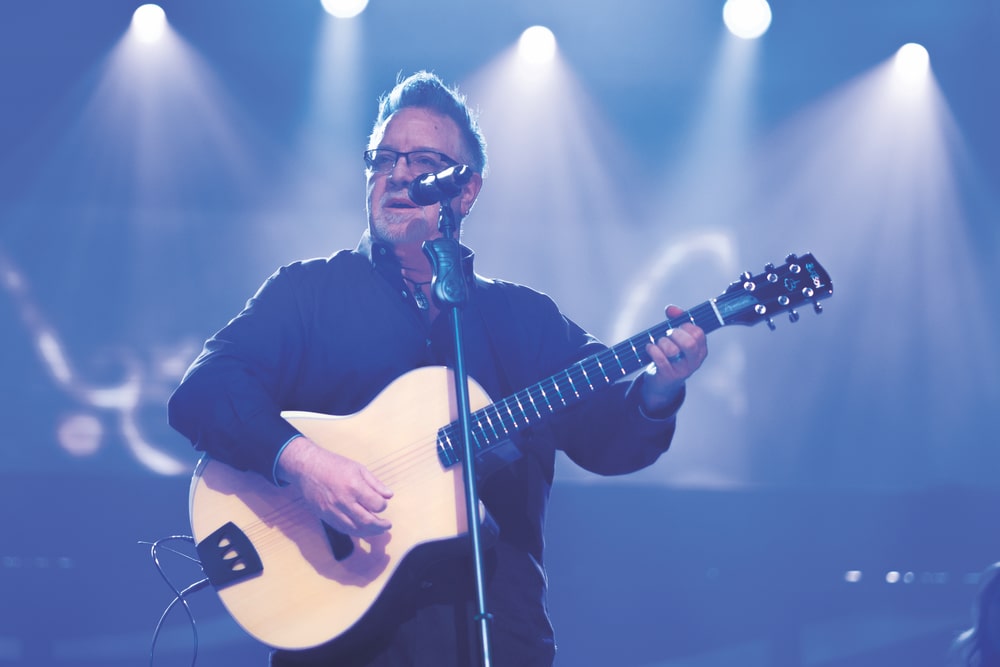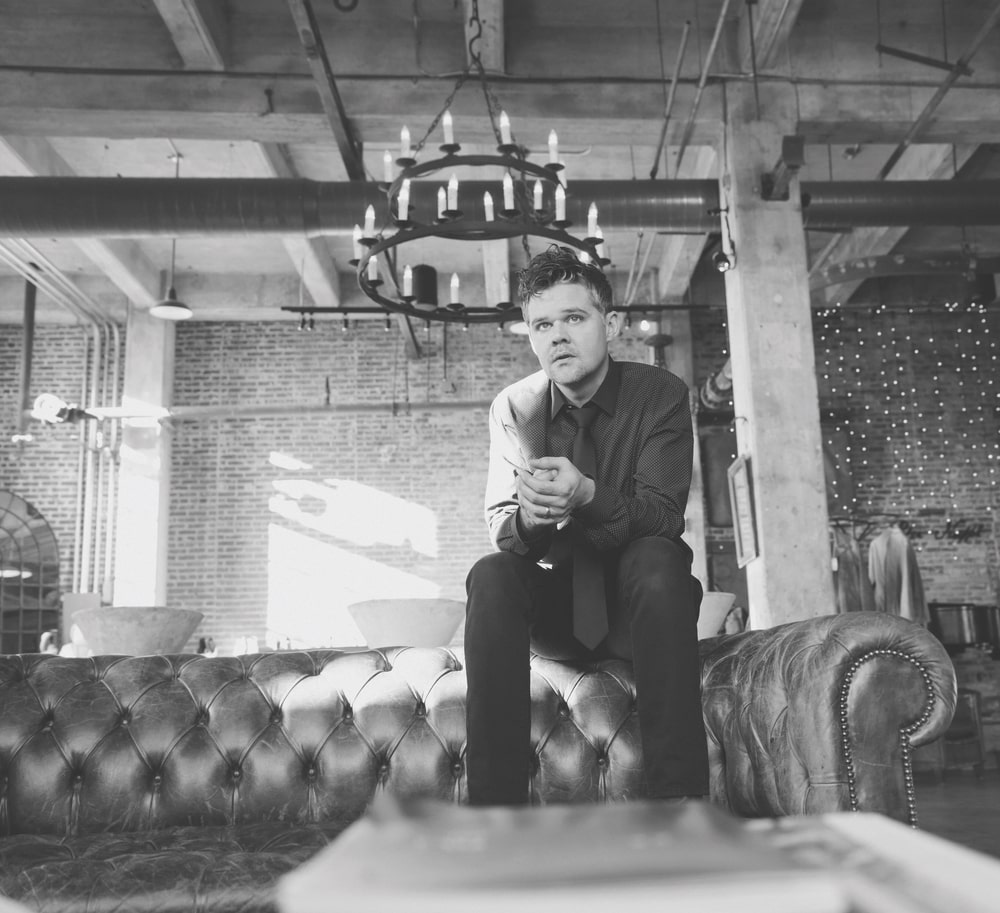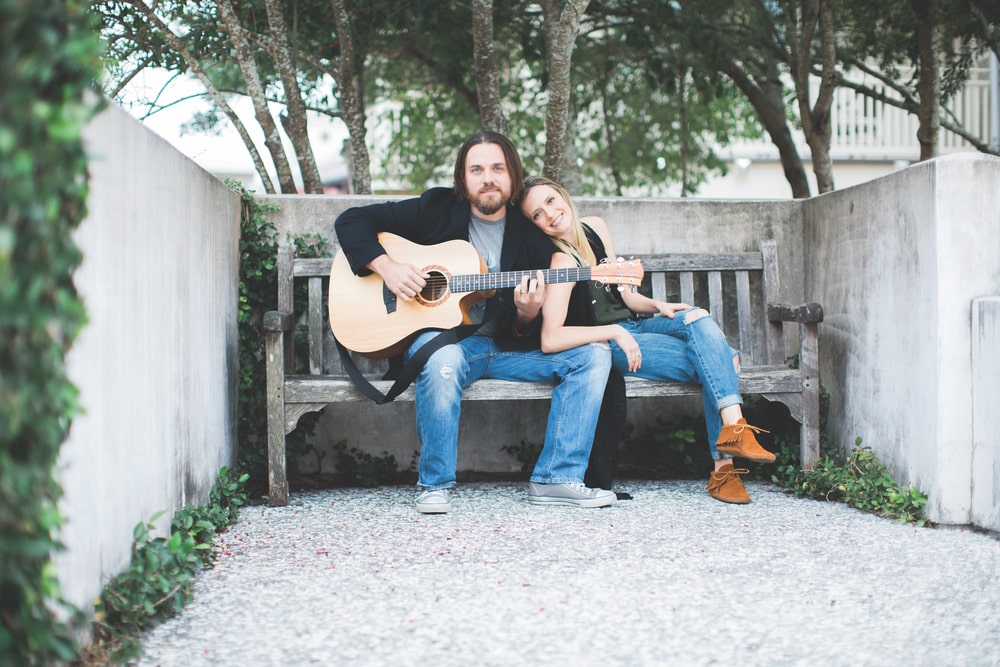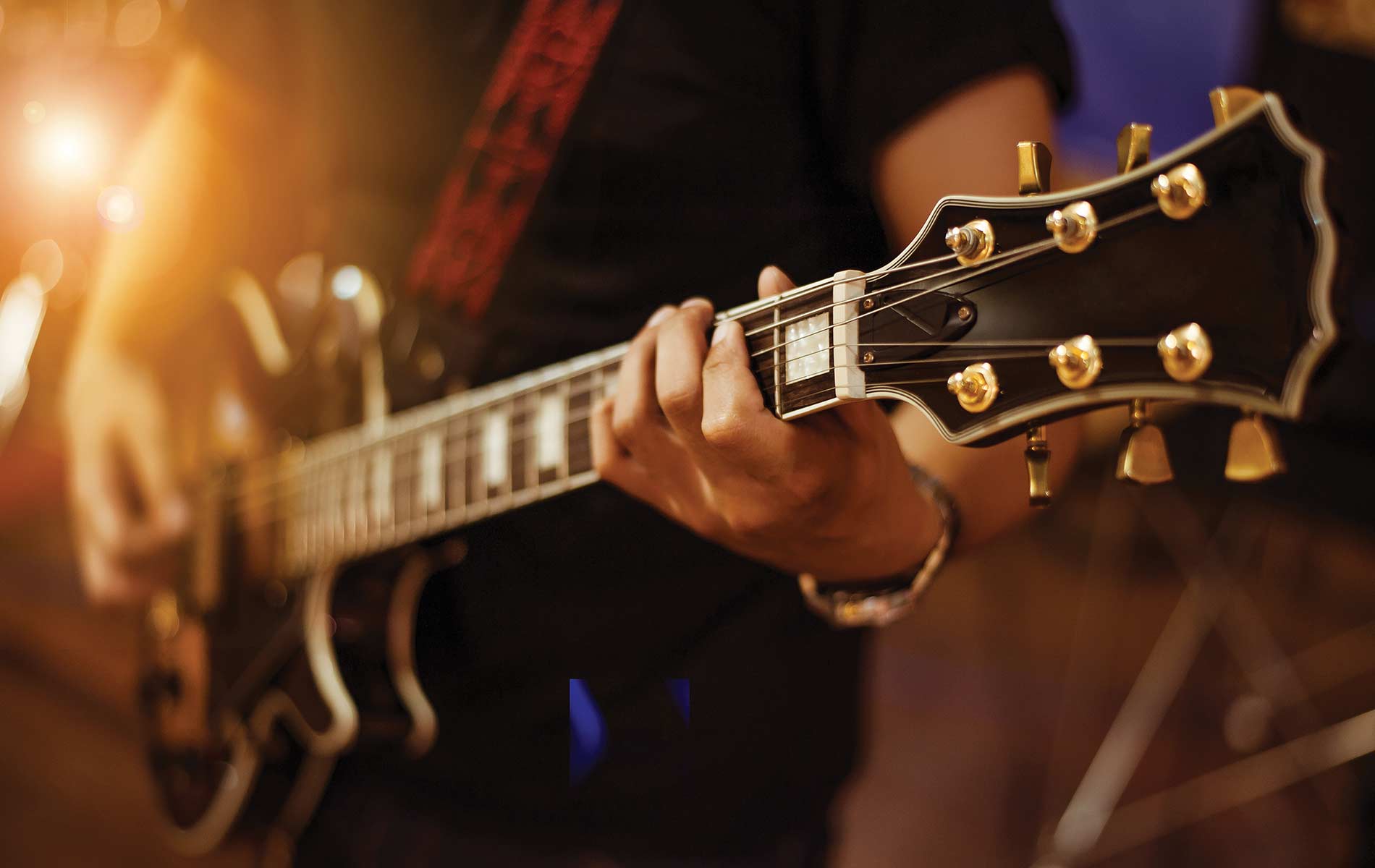
vie-magazine-pc-songwriters-hero-min
To the Tune of Goodness
Panama City Songwriters Festival Gives Back
By Sallie W. Boyles
It’s no secret, and yet many fans would be shocked to learn that their music idols didn’t write the songs they’ve made famous. A star-quality voice might launch a song to the top of the charts, but where would that voice be without lyrics and music? As Will Thompson, producer of the inaugural 2018 Panama City Songwriters Festival, points out, “There are a lot of great singers, but it takes a great song to make a hit.”
A songwriter, singer, musician, producer, and music teacher, Thompson has orchestrated an event that showcases the composers, with some legendary songwriters among the seventy performing in November’s festival in Panama City, Florida.
Charlie Black (“Shadows in the Moonlight” and “A Little Good News” for Anne Murray; “Right on the Money” recorded by Alan Jackson) and Dana Black (“Check Yes or No” and “Write This Down” for George Strait) have scored over twenty top hits between them. Monty Powell (“Sweet Thing” and “Kiss a Girl” recorded by Keith Urban) has more than ten number-one songs. Hits of Brandon Barnes (“One Last Cry” and “Anytime” recorded by Brian McKnight) top the R&B charts. Brian White’s music (“Holding Out Hope to You” recorded by Michael English; “The Promise” recorded by the Martins) has delivered fourteen top hits and garnered two Dove Awards. Other notables include Travis Meadows, Eric Erdman, Will Kimbrough, Grayson Capps, Gabe Dixon, and Adam Wakefield (The Voice). Taking the stage, too, are regional and local talents.
He could have arranged a beach happening to maximize crowds and sponsorships, but Thompson chose in-town venues to set a personal tone. “We have seating for about fourteen hundred people,” he says. “It’s a nice, comfortable festival, not too big, so everyone has a VIP experience. We’re not selling more tickets than seats.” General admission tickets ($50) allow access to all venues during Saturday, November 17, and Sunday, November 18. Enhanced VIP options add a Friday evening party ($85) or a Sunday sunset cruise ($125) with live music, hors d’oeuvres, and drinks.
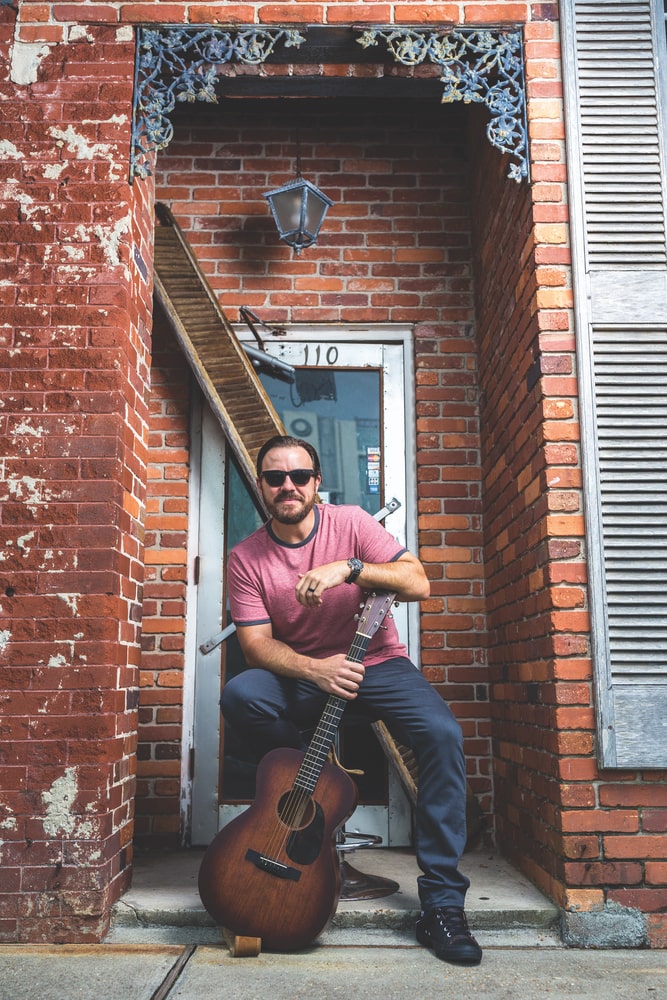
Will Thompson
Photo by Michael Booini
Ticketholders receive a schedule with the songwriters’ bios as a guide. All venues are indoors and within walking distance of each other. Running from noon to nine o’clock on Saturday and Sunday, performances are divided into hour-long segments. Two acts go on stage at once, taking turns back and forth. The format engages audiences and, Thompson says, “You get intimate exposure to the artists.”
“The cool thing about the songwriter festival is that you get to hear the story behind the song,” says Charlie Black. “They might tell you about their inspiration for the song, or what was going on when they wrote the song, and, if they cowrote it, what took place. People are interested in the process.”
“It’s a unique opportunity to hear from the heart of the songwriter,” says Brian White, “and we convey it differently. We’re most likely sitting on a stool with an acoustic guitar or at a keyboard, so you hear the song in a very transparent or stripped-down way. For the person coming to the songwriter festival, the song takes on a whole new meaning.”
Besides featuring music veterans like Black and White, Thompson says, “This is also about those songwriting treasures who aren’t yet heard. We are very big on giving people a chance and a place to perform.” Accepting submissions from all over the nation, Thompson called on a panel of judges to review each entry, requiring two audio recordings of original songs and one video.
“It’s a unique opportunity to hear from the heart of the songwriter,” says Brian White, “and we convey it differently.
Also encouraging teens between the ages of twelve and eighteen to submit a song, Thompson says, “We picked special students to perform at the festival. It’s important to let them know there is a place for their songs.” The event’s proceeds will benefit the Bay Youth Music Association (BYMA), a 501(c)(3) nonprofit that Thompson formed five years ago to fund music education in Florida’s Bay County high schools.
“Florida ranks forty-eight out of fifty for school funding for the arts,” says Thompson. “I started BYMA by just teaching kids music here and there.” The charity also gave low-income students their own instruments, but parents would sometimes pawn them, so with teachers’ input, the instruments are now donated to schools. In 2018, BYMA further awarded its first monetary scholarship to a talented student pursuing a music degree at Troy University.
Thompson’s goal is to build what he calls “a YMCA for musicians. Instead of coming up to the front desk for a basketball or football, the student will get a trumpet or other instrument to practice.” The facility would provide soundproof practice rooms and volunteer music teachers for lessons. Fund-raising through endeavors like the PC Songwriters Festival and contributions from those who appreciate a music education’s value, even if not for a career, is vital.
- Adam Wakefield
- Brian White
- Gabe Dixon
- Will and Lindsey Thompson
“Will’s charity is so cool,” says Charlie Black. “The prospect of enabling kids to play music in whatever fashion or form they can to express themselves is important. It gives them a broader perspective. It helps with math. We can all learn a musical instrument at any age, but starting early helps.”
A music career seemed inevitable for Thompson. “Both of my parents are retired Bay County music teachers,” he says, recalling a childhood of waking up to music playing. “The house was saturated with music of different varieties.” His parents preferred jazz and classical. Of Thompson’s two sisters, one gravitated to country and the other to rock and roll. He took up several instruments and enjoyed all genres. “In high school, I was into grunge,” he says, but found himself “more moved by soulful music, blues. In my senior year of high school, three other guys and I formed an a cappella quartet.”
Thompson was a college sophomore when he seized an opportunity to work with Brian McKnight, the multiple Grammy-nominated R&B artist. Having McKnight, his most powerful influence, take him under wing seemed a dream but led Thompson to his “little Jerry McGuire moment,” he says. “I was offered a record deal in New York, Nashville, and LA. I want to be a musician on a record label, but none of them was right.” Waking away from everything, he spent a year working on a chicken farm in Goshen, Alabama, before returning to Panama City.
There’s never been a better time to get your music heard because there are so many outlets.
While teaching and occasionally “singing out,” Thompson was “looking for someone who would partner with me, care about my well-being, my longevity—not just a quick hit. I wanted to build something that had integrity and felt right.” After seeing him perform, music producer Tommy Jackson offered Thompson an attractive sum to take his career seriously. Keeping a quarter of the money, Thompson gave the rest to charity, a musician buddy, and his wife, Lindsey, who is now making a name for herself as a singer-songwriter. “Her career has snowballed,” says Thompson. He also set up a recording studio next to his home, where he produces everything from R&B to country for other artists, charity projects, and himself. Singing his songs and playing all instruments, he solely produced his album Turn It Up. “I fell in love with music again,” he affirms.
Garnering the industry’s love and respect is tough. “They hardly pay songwriters anything,” says Dana Black. “If you get really hot and meet the right people or the right person to record the album, that’s a big thing, but a rare thing.” Still, while competing for limited spots on the same celebrities’ albums, Nashville’s veterans contend that songwriters support each other.
Also, as Brian White expresses, “There’s never been a better time to get your music heard because there are so many outlets. I love to give that encouragement to aspiring songwriters. All of them have a story and experiences to convey that I can’t. Different things are put into each one of us to put out into the world. I’ve had people walk up to me at shows—they might be seventy-five years old—and tell me they’ve always wanted to write songs, and I say, ‘Go do that!’”
Songwriting is a calling. For Thompson, it’s about creating art, connecting with people from all walks of life, following his dreams, and helping young musicians do the same. Whatever comes next, the Bay Youth Music Association and PC Songwriters Festival are already important chapters with more to be written.
— V —
For additional information about the PC Songwriters Festival and Bay Youth Music Association, readers should visit PCsongwriters.com, Facebook.com/BayYouthMusic, or Facebook.com/PCSongwriter.
Sallie W. Boyles works as a freelance journalist, ghostwriter, copywriter, and editor through Write Lady Inc., her Atlanta-based company. With an MBA in marketing, she marvels at the power of words, particularly in business and politics, but loves nothing more than relaying extraordinary personal stories that are believable only because they are true.
Share This Story!
KEEP UP WITH THE LATEST STORIES FROM VIE



